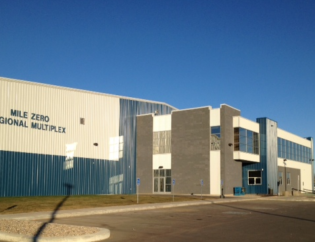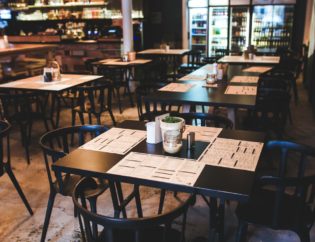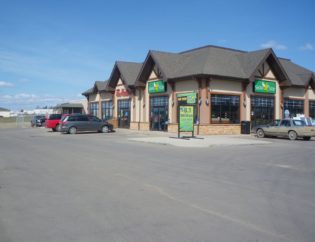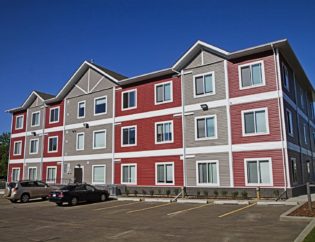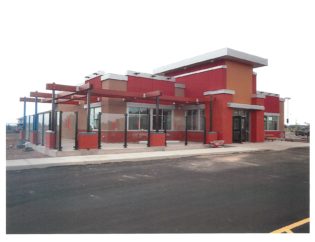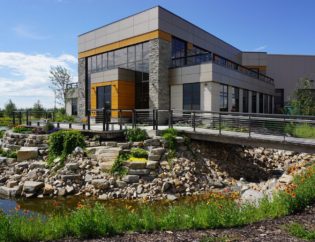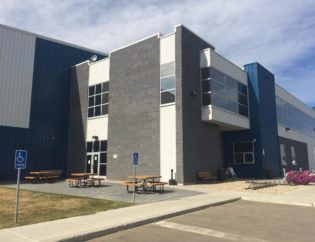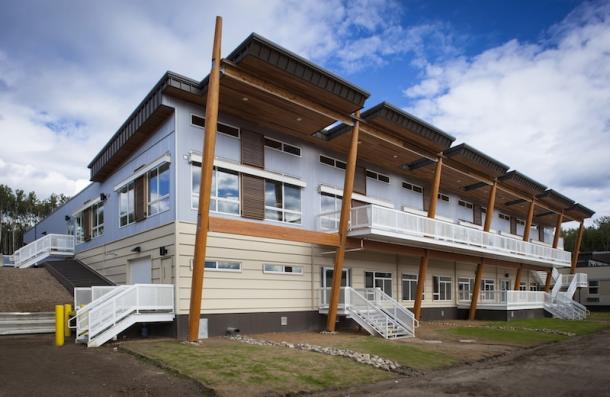
Collaboration is the key to creativity in modular construction; involvement from the outset of the design will ensure that your project is both functional and aesthetically pleasing. For Alberta construction projects, Cormode & Dickson’s expert project managers can collaborate with designers to build creative projects that utilize the flexibility of prefabricated components – both permanent and temporary. Budding entrepreneurs in particular can create interesting office spaces using modular construction, which will also allow them to grow and change their space as the business grows and changes; altering and changing conventional builds is costly and messy, but interior modular construction provides both flexibility and ease in changing and expanding spaces – not to mention that it’s also sustainable by nature.
The possibilities for modular construction are limitless – it’s all a matter of looking at what can be done offsite in a safe, healthy work environment and can then be transferred to site. Here are six creative ways to use modular construction:
- Transportation
Providing a high quality product with a quick turnaround and at a low price is probably the Alberta construction industry’s biggest need and modular construction is one of the most practical ways to meet these needs. Conventional construction requires all work to be done onsite, but utiziling modular construction on bridge projects enables crews to complete all the necessary groundwork while modular components of the bridge are built offsite – allowing construction to occur in tandem and accelerating the schedule – while also giving workers the opportunity to complete work in a facility without the impact of the elements.
- Housing
The bones of every house and apartment building are virtually the same whether your’re using conventional or modular construction. Once you realize that, you can envision the possibilities inherent in modular design. Because modules are built offsite, onsite workers need only worry about earthworks and foundations before each module is transported to site. And as with conventional builds, the exterior finishes for modular builds are endless. Using modular construction in combination with current tools like Building Information Modelling (BIM), designers and builders can work together to create housing that’s interesting and aesthetically pleasing while also practical, sustainable, modern, and afforadable.
- Education
The nature of modular construction alone allows for expansion – as a any city planner or university facilities team knows, expansion is a continual need. The University of Alberta alone has added multiple buildings to their campus over the last 10 years and elementary, junior high, and high schools are forever expanding using temporary modular buildings. Creatively designing educational facilities using modular construction makes expansion a built-in possibility from the start, providing future cost savings at the project’s outset. Also, strict controls in modular building facilities ensure a high quality, efficient product and an accelerated schedule.
- Agriculture
The unique challenges of the agriculture industry are creating a trend towards growing up instead of out; meaning that vertical farming is uniquely suited to modular construction. In fact, Cormode & Dickson recently built a vertical farming facility for NutraPonics Corporation Canada. Additionally, modular construction provides creative, flexible, long-lasting solutions to agricultural buildings from material and equipment storage to grow facilities and greenhouses. Oftentimes, modular buildings don’t just meet the same building codes as conventional construction, but exceeds them! Never mind that they are generally stronger since each module is engineered to withstand transportation and craning.
- Retail
Modular construction saves both time and money, making it a perfect fit for retail applications. As mentioned, site work and modular construction can occur simultaneously making for a shortened construction period, allowing retailers to occupy their locations faster. From hotels and motels to gas stations, car washes, convenience and clothing stores or storage facilities, modular construction offers an endless variety of retail possibilities with a quick turnaround.
- Humanitarian Crises
Because of the quick build time and versatility, modular units create clean and secure temporary housing or hospital facilities in crisis situations. From storing supplies, acting as soup kitchens, schools, or even just community facilities, companies seeking to provide aid and support have an accessible and flexible solution to providing various kinds of safe shelters.


